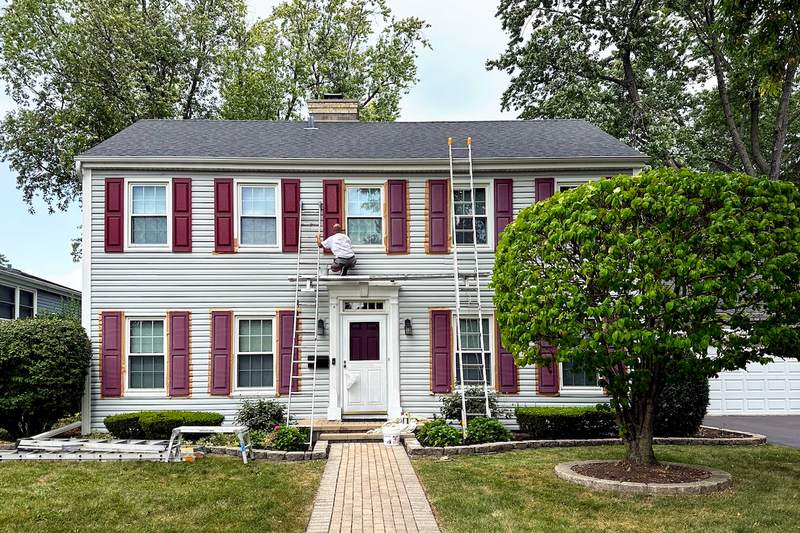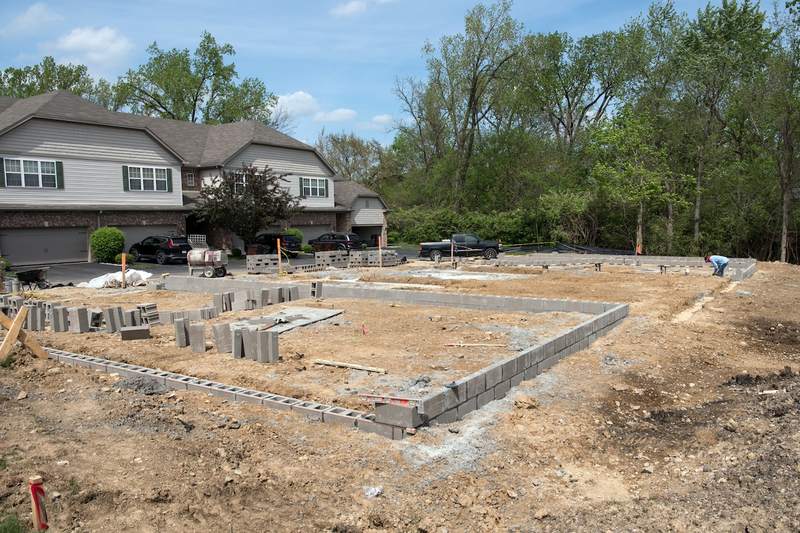

Land contracts offer a potential alternative to traditional mortgage financing. If you don’t qualify for traditional financing, land contracts are especially appealing. But you’ll need to find a seller willing to work out this alternative arrangement with you.
A land contract is a type of legal agreement between a buyer and seller to purchase real estate without the involvement of a mortgage lender. This type of contract is usually used as an alternative to a traditional mortgage and is considered a type of seller financing.
At its core, a land contract is designed to transfer land ownership. In the contract, buyers and sellers must agree on a variety of details beyond just the sale price and closing date.
The land contract is a legal agreement, just like a buyer would enter with their bank if they took out a mortgage. However, there are major differences between the land contract and conventional loan.
For starters, buyers don’t have to qualify like they would with a mortgage lender. While sellers may have specific qualifying requirements, they’re often much more lenient than a traditional bank might be.
Another major difference is the balloon payment sellers may require. Sellers often only provide financing for a short period. The goal is to give the buyers enough time to get more standard financing to pay off the seller. The balloon payment is one that covers the remaining balance of the loan, plus interest, after any previous payments are deducted.
Not all land contracts are created the same. Below is a look at the two most common types of land contracts.
In a traditional land contract, the seller holds onto the legal title of the property until the buyer pays off the entire loan. Buyers on a land contract hold the equitable title but not the legal title. This means the buyer has the right to earn equity in the property but can’t transfer ownership because they aren’t the legal owner until they pay off the seller in full.
In a wrap-around land contract, the seller continues to pay their existing mortgage loan and the buyer makes payments directly to the seller. With that, the seller can pocket the difference between their existing mortgage payment and what the buyer pays them each month.
It’s important to note that the seller’s original lender often has to agree explicitly to this arrangement. In most cases, the lender will retain the primary lien position, which means the original mortgage lender is repaid first if the buyer doesn’t make payments and the seller pursues foreclosure.
Another important difference is that wrap-around land contracts provide the buyer with a warranty deed to the property immediately. With that, the buyer owns the home immediately.
You can get a real, customizable mortgage solution based on your unique financial situation.
A land contract involves many details, which the buyer and seller must come to an agreement about. Below is a closer look at some of the details buyers and sellers must hammer out.
The buyer and seller must also agree on a down payment amount. The money you put down is your investment and lowers the amount you borrow.
It can be a percentage of the sales price or a flat dollar amount, depending on what the buyer and seller agree on.
Since the seller is financing the purchase, they get to set the interest rates. The seller can set a fixed rate or adjustable rate, depending on how they want to handle the transaction.
Many sellers offering short-term financing are comfortable with a fixed rate because the contract has a short-term and balloon payment. Others set longer terms but make up for the risk by charging an interest rate that increases over time.
The buyer and seller must agree on a monthly payment amount. Depending on the situation, the seller may agree to bimonthly payments or any other arrangement you need.
Of course, the buyer and seller must agree on a purchase price before signing the contract. This is the amount the buyer must pay off (plus interest) to own the land.
A major point of discussion may be the transfer of the legal title. In most cases, buyers don’t receive legal title until they pay the balance in full. This means they can’t transfer ownership until they pay the seller off in full.
Most land contracts have a balloon payment or payment of the amount left after a couple of years. It’s typically a short-term arrangement to help buyers get on their feet while taking ownership of the land they want.
The buyer and seller can add additional details to the contract as needed. Some details you might consider adding include:
As you navigate this process, it’s often a good idea to enlist the help of a real estate attorney.
Quicken Loans ® lets you get to house hunting sooner.
Every financial transaction has advantages and disadvantages. Explore both sides below.
Some of the advantages of a land contract include:
Now let’s take a closer look at the disadvantages of a land contract.
Once you have your hands on the property you desire through a land contract, you’ll likely need to move forward with a traditional mortgage in the near future. In fact, most sellers expect buyers to convert the land contract into a traditional mortgage at some point to pay off the seller.
Below is a look at the steps you can take to refinance the property into a traditional mortgage.
Many buyers pursuing a land contract have less than ideal credit. Once you’ve closed on the land contract, make every effort to improve your credit score. Some ways to give your credit score a boost include making on-time monthly payments to your debts and avoiding applying for new credit.
As your credit score improves, you’ll open the door to other mortgage loans. While credit score requirements can vary, consider aiming to get your credit score to the 620 mark to access most types of mortgages.
Building cash reserves gives you more financial peace of mind. And it also offers lenders proof that you can afford to handle a regular mortgage payment.
It’s important to be clear about the property’s title. If there is any vagueness about ownership, it can be difficult to get a traditional lender to work with you.
At this point in the process, it’s especially helpful to have a real estate lawyer on your side.
When your credit score is improved and you’ve created a record of on-time payments, you might be ready to shop for a lender. As you explore your options, compare interest rates and terms across lenders. It’s a good idea to compare the details from multiple lenders to help you lock in the right fit for your situation.
After finding a lender that suits your needs, it’s time to apply for a home loan. You’ll need to provide a wide range of personal and financial information to the lender. Be prepared to provide the land contract details, your tax returns, recent pay stubs, bank account information and more.
If approved for the home loan, it’s time to close. Be prepared to cover closing costs, which usually amount to between 2% and 6% of the loan amount.
At closing, the lender may send the seller the funds you owe directly. If not, you’ll need to facilitate the transfer of funds by paying off the seller as soon as you receive the home loan funding.
A land contract could pave the way for homeownership, especially if you have bad credit and can find a seller who is willing to work with you. While a land contract can be helpful, a traditional home loan is the ultimate goal.
See options that work for your unique financial situation.












LMB Mortgage Services, Inc., (dba Quicken Loans), is not acting as a lender or broker. The information provided by you to Quicken Loans is not an application for a mortgage loan, nor is it used to pre-qualify you with any lender. If you are contacted by a lender or broker advertising within our network, your quoted rate may be higher depending on your property location, credit score, loan-to-value ratio, debt-to-income ratio, and/or other factors. Quicken Loans does not offer its matching services in all states. This loan may not be available for all credit types, and not all service providers in the Quicken Loans network offer this or other products with interest-only options. The information that we provide is from companies which Quicken Loans and its partners may receive compensation. This compensation may influence the selection, appearance, and order of appearance on this site. The information provided by Quicken Loans does not include all financial services companies or all of their available product and service offerings. Article content appears via license from original author or content owner, including Rocket Mortgage.
Note: Actions on this website are recorded for quality assurance or training purposes. Input of data constitutes consent.
Quicken Loans is a registered trademark of Rocket Mortgage, LLC, used under license by LMB Mortgage Services, Inc.
LMB Mortgage Services, Inc. | NMLS #167283
4859 W Slauson Ave #405 Los Angeles, CA 90056